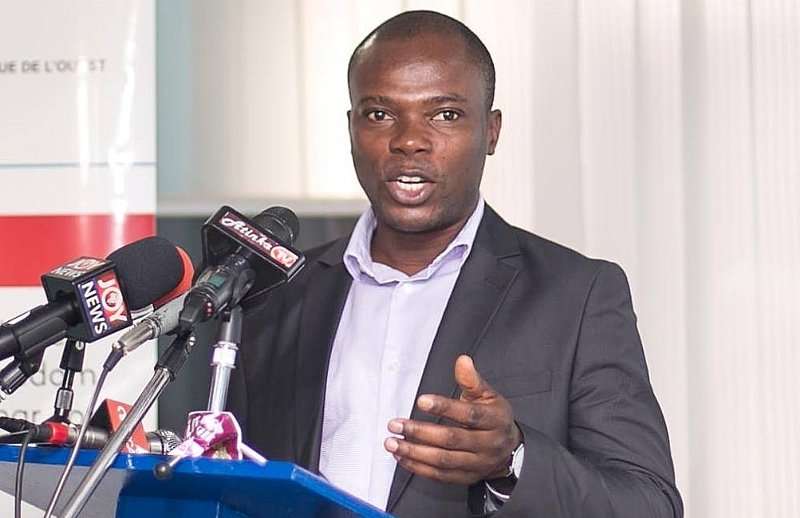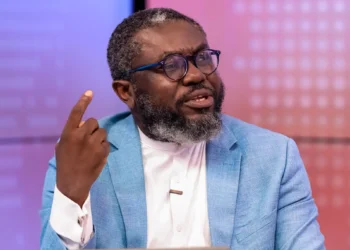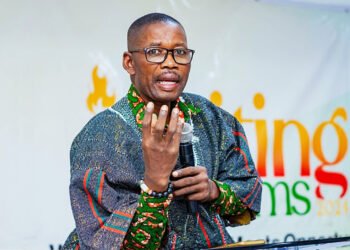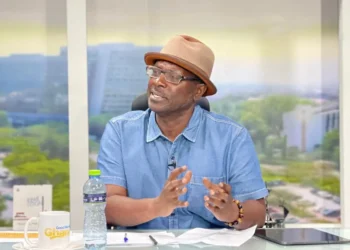In a significant move towards greater transparency, the Electoral Commission (EC) of Ghana has decided to allow media presence during the upcoming Inter-Party Advisory Committee (IPAC) meeting.
This is a historic first for the IPAC meetings and comes at a critical juncture ahead of the December 7th general elections. Executive Director of the Media Foundation for West Africa Sulemana Braimah has shared thoughts on this development, praising the EC’s decision while also cautioning about the challenges that may arise due to the partisan nature of Ghana’s media landscape.
According to Braimah, the decision by the Electoral Commission to open up the IPAC meeting to the media is a commendable step towards improving public trust and confidence in the EC.
He highlighted the importance of this move in light of the recent controversies surrounding the commission, which have raised questions about its credibility and transparency.
“There’s a lot that has happened that impugned the reputation, the credibility, the transparency of the Electoral Commission and so far the commissions response has also been that look, everything right s been done to ensure credible, free, fair elections.”
Sulemana Braimah Executive Director of the Media Foundation for West Africa
He emphasized how important it is for the EC to rebuild trust with the public. He noted that the EC has consistently maintained that it is taking all necessary steps to ensure a credible, free, and fair election. However, allowing media coverage at IPAC meetings signals a commitment to openness. He noted; “What it means is that, well, as far as they are concerned, there’s nothing to hide.”
This transparency is crucial, as it enables the public to be fully informed about the ongoing electoral processes, which will ultimately lead to increased confidence in the outcome of the elections.
Enhancing Public Confidence in the Electoral Process
Braimah stressed that transparency in electoral matters goes beyond just holding a free and fair election.
it also involves ensuring that the public is well-informed and confident in the processes leading up to the election. He explained that media coverage of the IPAC meeting would provide a platform for the public to witness any discrepancies that may arise and understand how the EC addresses them.
“It is important that the public becomes aware of the developments so that collectively, we can do what would ensure public trust, public confidence in the EC, so that we can have a very fair, free transparent election coming December 7th.”
Sulemana Braimah Executive Director of the Media Foundation for West Africa
Braimah’s commentary underlined the significance of trust in the EC’s ability to conduct credible elections.
He emphasized that transparency in the IPAC meeting and beyond is essential to preserving the integrity of the electoral process. This includes open communication from the EC at every stage of the election.
Proactive Communication: The Role of the EC
Braimah also took the opportunity to highlight the need for the EC to be proactive in its communication with the public and the media. He explained that the commission has often found itself in a position where it is reacting to allegations rather than taking the lead in providing timely and accurate information. he noted; “I think that the EC must be very, proactive”. this he emphasized that once a claim is made and you are reacting, people may have made up their minds already.”
He emphasized that it is crucial for the EC to communicate its actions and processes early and often to avoid being put in a defensive position.
Braimah acknowledged that the EC has made positive steps towards greater engagement with the media, with plans for media outreach sessions across various regions of the country.
Meanwhile, he revealed that from tomorrow there is an engagement in the Volta region. There’s one coming up in the northern region. There’s one in Ashanti region. There’s one in Accra, he explained, expressing optimism that the EC is moving in the right direction.

The Nigerian Example: Lessons in Transparency
While, others drew a comparisons between Ghana’s upcoming elections and the Nigerian elections, where media coverage played a crucial role in ensuring transparency during vote counting and the overall process.
for Instance, in the Nigeria the election results were broadcast live on television, which made it difficult for any misinformation or disinformation to gain traction.
The Nigerian elections is an example of how media involvement can enhance transparency.
He encouraged the EC to consider adopting similar measures, not just for the IPAC meetings but throughout the entire electoral process. This, he suggested, would allow for real-time verification of election activities and reduce the likelihood of disputes or false claims.
While Braimah praised the EC’s decision to involve the media, he also acknowledged the potential challenges this could pose. He pointed out that Ghana’s media landscape is highly polarized, with some media houses displaying clear partisan biases.
“We don’t also have to forget about the context of our media landscape today, where some media houses are obviously partisan and would always do things that are in the interest of their political parties rather than being fair to the issues and being transparent with the issues.”
Sulemana Braimah Executive Director of the Media Foundation for West Africa
Braimah suggested that while media coverage is crucial for transparency, the EC must be cautious in how it involves the media to ensure that it does not become an opportunity for certain media outlets to push political agendas.
Overall, Sulemana Braimah viewed the EC’s decision to allow media coverage at the IPAC meetings as a positive step towards enhancing transparency and building public trust.
However, he also emphasized the need for the EC to adopt a proactive communication strategy and carefully manage media involvement to avoid potential partisan manipulation.
As Ghana heads into its next election cycle, the role of the media and the EC’s ability to maintain credibility and transparency will be critical in ensuring that the election is free, fair, and trusted by the public.
READ ALSO; Trigmatic Expresses Concerns Over Lack of Recognition in Music Industry























